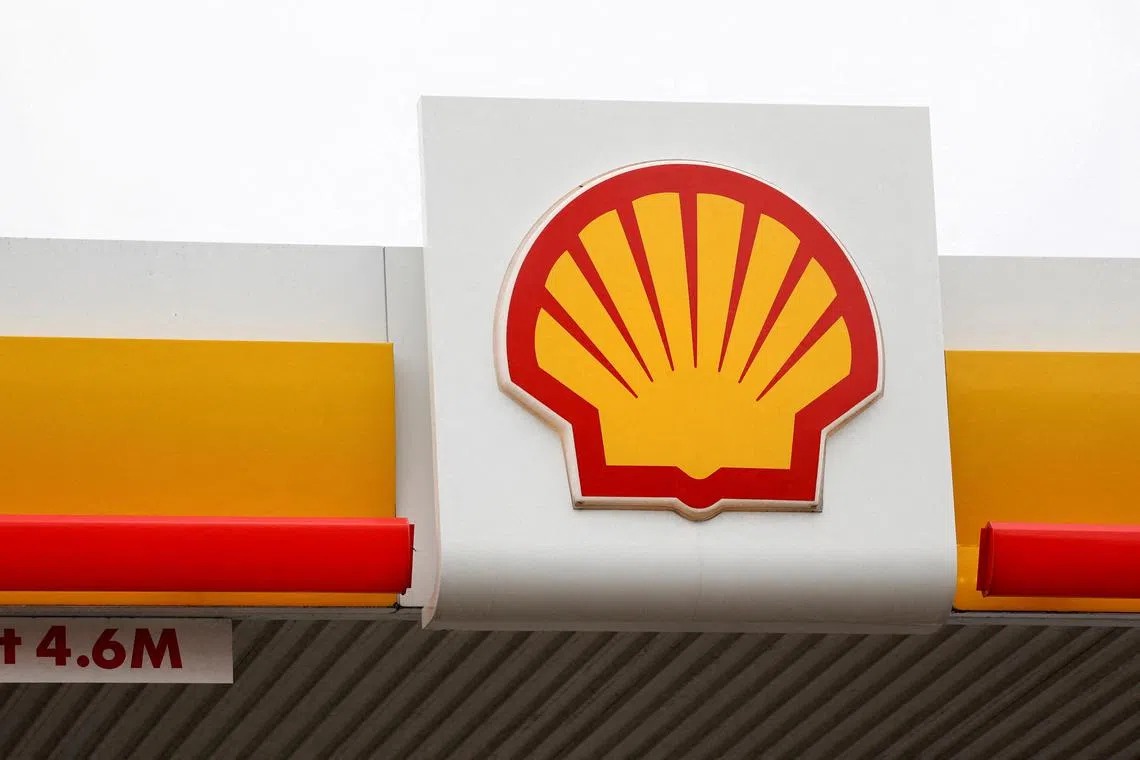Britain bans Shell, Repsol and Petronas ‘greenwashing’ ads
Sign up now: Get ST's newsletters delivered to your inbox

Shell was dinged for a poster, YouTube video and TV commercial that ran in June 2022, which used the phrase “cleaner energy.”
PHOTO: REUTERS
LONDON - The UK’s advertising regulator is cracking down on what it considers greenwashing by fossil fuel giants.
A handful of newspaper, TV and poster advertisements from Shell, Repsol and Petronas were banned in the country for touting investments in renewable energy without mentioning the extent of each company’s polluting activities.
Businesses in high-emitting sectors “need to be really careful” with environmental messages, said Mr Guy Parker, chief executive of the United Kingdom’s Advertising Standards Authority (ASA), in an interview with Bloomberg Green.
“Chances are, you’re going to need to add some balance to your ads.”
All the campaigns targeted by the ASA emphasise the oil companies’ ambitions on renewable energy.
Earlier, a TV commercial that ran in September for Malaysian oil major Petronas said it was “enriching lives for a sustainable future”, but the ASA said the ad failed to mention the company’s significant carbon emissions and gave the misleading impression that Petronas was already having a positive environmental impact.
“These companies did not go far enough in their campaigns to provide at least some information for readers and viewers of the ads that told the other side of the story,” Mr Parker said.
Responding to the ASA’s investigation, Petronas said the commercial acknowledged that it had been part of the problem, and “was a portrayal of how Petronas had and would act towards a sustainable future”.
For Spanish oil giant Repsol, the ASA zeroed in on an online ad from February, which ran on the website of the Financial Times and promoted Repsol’s investments in biofuels and synthetic fuels.
Those investments represent just a “fraction” of the company’s business, the ASA said.
Mr Kristian Rix, a spokesman for Repsol, said in an e-mailed statement that biofuels were “a crucial contributing solution to decarbonising the transport sector, and we remain committed to its large-scale development and roll-out for an effective and just energy transition”.
Shell was dinged by the ASA for a poster, YouTube video and TV commercial that ran in June 2022, all of which used the phrase “cleaner energy”.
The regulator said the ads were misleading because they elided the fact that the “vast majority” of Shell’s activities relate to oil and gas.
Consumers are “seeking out” businesses that are moving away from fossil fuels, the ASA noted in its ruling, but can be easily misled by ads that overemphasise the role lower-carbon technologies play in a company’s business.
A spokesman for Shell said it “strongly disagreed” with the ASA’s decision.
“People are already well aware that Shell produces the oil and gas they depend on today,” the company said in a statement.
“But what many people don’t know is we’re also investing heavily in low- and zero-carbon energy, including building one of the UK’s largest public networks of EV (electric vehicle) charge points. No energy transition can be successful if people are not aware of the alternatives available to them.”
Petronas, Repsol and Shell were all instructed not to run their ads again in the UK, and to ensure that future ads did not “misleadingly omit material information” – an echo of an ASA ruling against HSBC Holdings last year.
The agency banned an HSBC poster that advertised the bank’s investment in renewables without mentioning its funding of fossil-fuel infrastructure.
“The ASA was the first regulator in the world that banned a high-profile campaign like this on the basis of misleading by omission,” Mr Parker said.
“Not because what they were saying in the ads was untrue in and of themselves, but because of what they weren’t saying.”
Mr Parker has been CEO of the ASA since 2009, and said the regulator is increasingly proactive about hunting down misleading campaigns.
Its process involves both investigating complaints about misleading ads and trawling the Internet for potentially problematic claims, which are fed into a machine-learning model that identifies those most likely to be greenwashing.
Humans then analyse the ads and make a final decision about whether to ban them.
Ad-Free Cities, a UK campaign group that reported the Shell and Repsol ads to the ASA, said fossil fuel companies should be banned from advertising entirely, not unlike tobacco firms.
The group called for “robust legislation” to pre-emptively stop similar ads from running, and for advertising agencies to stop taking on fossil fuel companies as clients.
Mr Parker said the ASA is prioritising industries where consumers’ behavioural changes are important for reducing emissions, guided by analysis from the Climate Change Committee, the UK government’s official adviser.
That largely means focusing on energy, heating, transport and food.
Companies with ads banned in recent years include the airlines Lufthansa and Etihad, consumer goods giant Unilever, and carmaker Hyundai.
“We see advertising... as having an important part to play in the UK hitting its targets,” Mr Parker said.
That is in part because consumers are not great at spotting greenwashing themselves.
“If you asked people individually, they might say, ‘That might mislead other people, but it wouldn’t mislead me’,” Mr Parker said.
“You should always take that sort of feedback with a big pinch of salt.” BLOOMBERG


